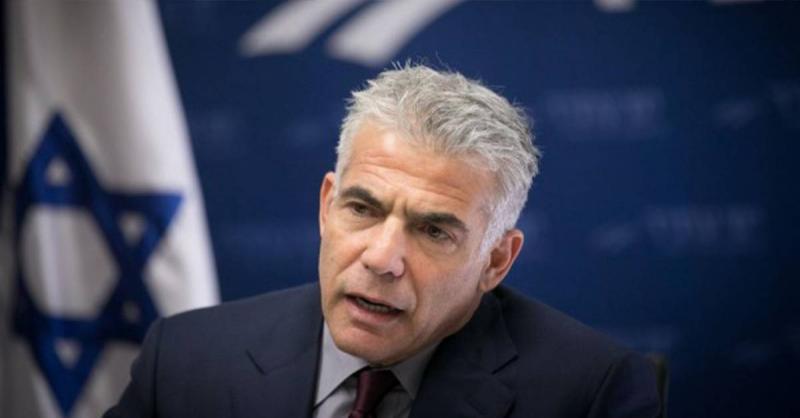One is a secular center-left figure who believes Palestinians should have their own state, while the other is a symbol of the hardline religious right who wishes to annex most of the occupied West Bank. These two men represent polar opposites on the Israeli political landscape, but they may now cooperate to remove Benjamin Netanyahu. If Netanyahu, the longest-serving prime minister, is ousted after four inconclusive elections over two years, it will not be due to his opponents rallying voters behind a new political program, but because these two men, who differ on nearly everything, have succeeded in reaching an agreement.
After Netanyahu failed to form a coalition before the deadline, the mandate to form a government this week passed to Yair Lapid, a 57-year-old former broadcaster with appeal on television and an author of thrillers who presents himself as the voice of the secular middle class. However, his only way to form a government is by garnering the support of a political figure who is his exact opposite, Naftali Bennett, a 49-year-old former special forces member turned technology entrepreneur closely associated with the settlement movement.
Lapid has 28 days to form a coalition and is expected to offer Bennett the premiership first, according to an agreement that would later allow Lapid to hold the position. This was the same offer Netanyahu made to Bennett, which Bennett rejected.
Although they receive support from two different political camps, Lapid and Bennett have maintained a close personal relationship since they both entered politics in 2013 as representatives of the new generation. They both made their way into Netanyahu's coalition. They were known for taking the stage with a guitar to play a popular tune. When they served together briefly in Netanyahu's government, each referred to the other as "my brother."
Lapid did not return to Netanyahu's government after a brief tenure as finance minister. Bennett held two positions, leaning more toward Netanyahu's right-wing stance. The elections of March 23 highlighted the extent of polarization among Israeli voters regarding Netanyahu. He enjoys overwhelming support among his right-wing base, even as he stands trial on corruption charges. Netanyahu's Likud party lost seats in the elections despite a campaign that focused on his role in Israel's successful vaccination rollout against COVID-19.
On Wednesday, Lapid promoted himself as a unifying figure, stating, "We need a government that shows we do not hate each other. A government where the left, right, and center work together to face the economic and security challenges we face." He asserted his intention to form a coalition that includes parties from various spectrum components united by a clear goal: to remove Netanyahu forever. However, Bennett may hinder this commitment, especially since he served as an aide to Netanyahu, and his supporters on the right endorse many of Netanyahu’s objectives.
While Bennett has repeatedly spoken about a new beginning, he has never explicitly stated that Netanyahu should leave. Although he is not a settler, he firmly supports the agenda of Jews living on land in the West Bank, claiming he will grant Palestinians broader autonomy but will never agree to the establishment of a Palestinian state. Nonetheless, Bennett adopts a somewhat liberal stance on several issues, which could support the possibility of common ground between him and Lapid.
Bennett's message following the elections also echoed calls for unity and healing, similar to Lapid's. Bennett stated that going to a fifth election would lead to "destroying the country." He added that any "unity government" would need to avoid making any substantial changes to policies related to the Israeli-Palestinian conflict and instead focus on revitalizing the economy affected by the COVID-19 pandemic and implementing reforms in the education and business sectors.
Complicating the situation is that any government formed by Lapid and Bennett will require at least implicit support from parties representing Israel's Arab minority, which makes up 21% of the population. This could likely grant them a voice in government formation for the first time in decades. Two questions remain unanswered: whether Arab representatives would accept Bennett as head of government and support him, and whether Bennett's party colleagues would accept this support.
If these previous steps cannot be executed, Netanyahu will certainly be ready to re-enter the political battle. Tal Shalev, a political correspondent for Walla News, stated on Thursday, "It is still very early to announce the dawn of a new era or the end of Netanyahu’s reign... his star has not yet set."




